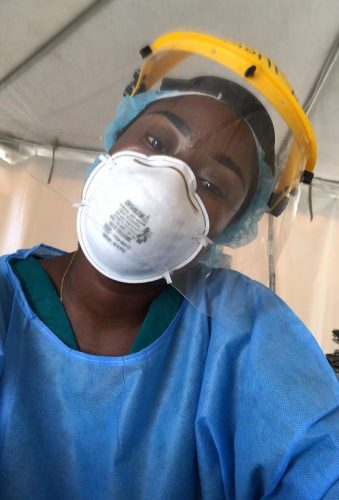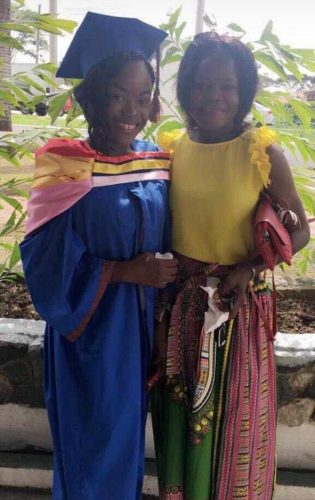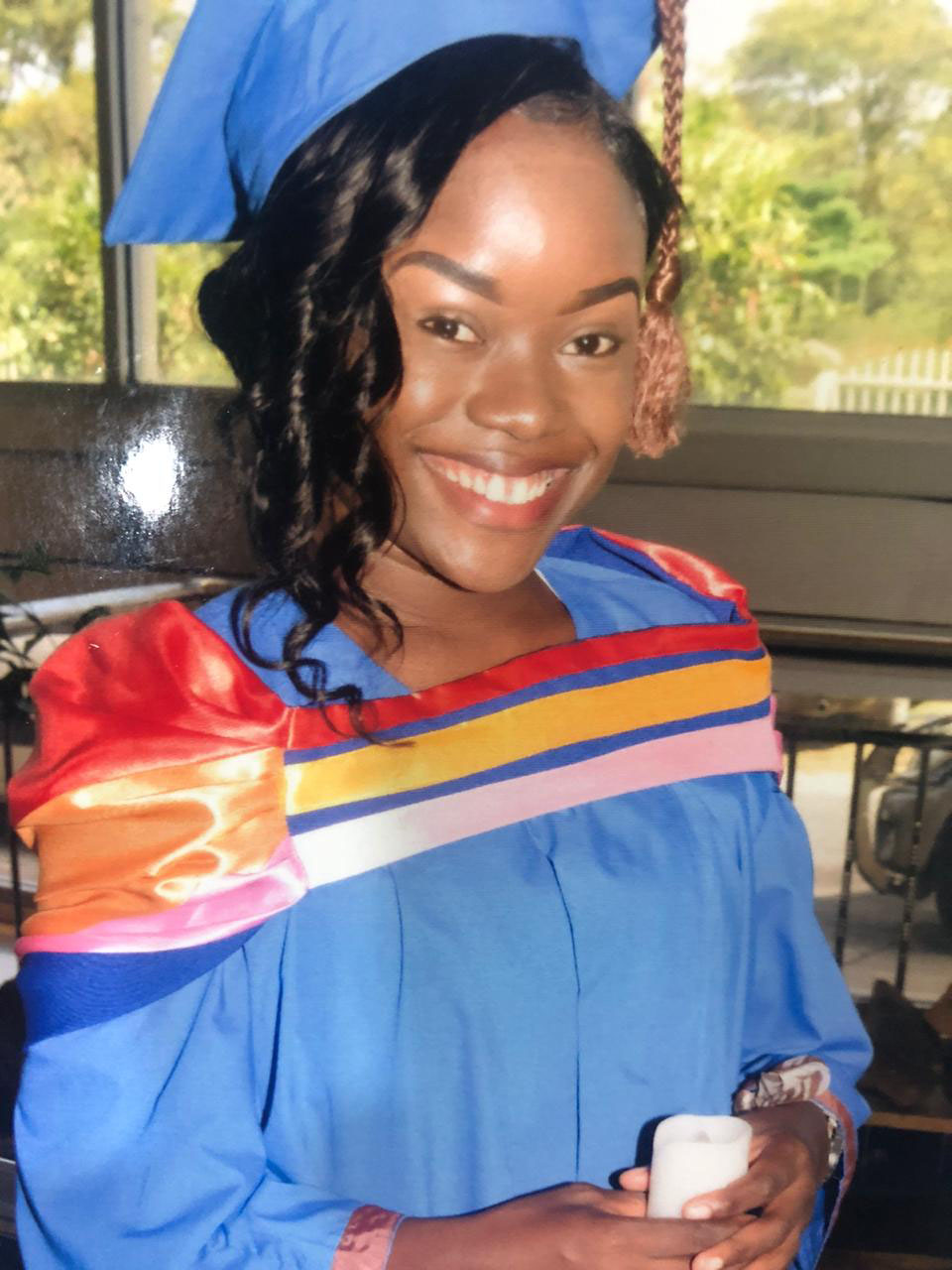Young nurse Allison Denica Thomas baulked at working in the coronavirus transition unit at the Georgetown Public Hospital (GPH) but months after she has been stationed there she finds motivation in reporting for duty every day because as she puts it, “the world needs help”.
Knowing, “you can go out and help somebody else that gives you motivation,” she said about being an essential worker. And while some days she may waver, knowing that she is needed and not wanting to be selfish because there are colleagues who also depend on her, she turns up for work. If she does not show, she knows that one of her colleagues would have to fill in. She does not think that is fair.
“And it is better than being at home doing nothing. You know, right now some people don’t have their job and I still consider myself as being fortunate. You are learning something new every day and you are recognized, more now because of this pandemic and you are contributing to the world being better,” she said.

In a sit down with Stabroek Weekend, the young nurse shared her journey to becoming a nurse, her work in the transition unit and also the recent death of her mother, a woman she greatly admired and who was instrumental in her becoming the woman she is today.
“The persons on the ward are screened at the gates. You have the East Street and New Market entrances and as long as they have most of the symptoms they are then sent up to the unit… While they are there, they have their medication and so on. It’s not like they are just awaiting the results, they are being treated there as well,” the young nurse explained.
She recalled that when calls were made for persons to work in the ward, she was encouraged by colleagues who formed a team. She has been there since March and has not regretted one moment.

“It is challenging, but the experience is good,” she said, later explaining the challenge. “You have to be extremely careful with what you are doing. You can’t take anybody for granted. We have to treat each and every person that is admitted into the coronavirus ward as if they are positive because you don’t want to lapse and if they come back positive then you regret.”
But she pointed out that it is just like working in a regular ward with the added precautions, medications have to be administered but protective gear has to be worn. Instructions given by the doctor are followed, everyone is swabbed, results are given and then the patients are transitioned to their required ward. On the ward they work the night shift for one month and the day shift for three months.
Working in the unit has demonstrated to Nurse Thomas how deceptive the virus can be as persons who sometimes exhibit the least symptoms are actually positive and others who one might have thought was positive get negative results.
“I have had experiences with persons who you can’t look at them and tell that is what they have and when they actually get the positive result you are left in awe because you never expected that… A lot of time in public you look at someone and say you are not going to go around them because they have certain symptoms, but it is the ones who you take for granted are the ones who are positive,” she said.
This, she said, drives home to them the importance of always wearing their protective gear.
Data for the coronavirus also known as COVID-19 has suggested that 80% of infections are mild or asymptomatic (meaning they show little or no symptoms of the virus) while 15% are severe infection, requiring oxygen and 5% are critical infections, requiring ventilation.
Thomas was never around when a patient received a positive result, but from the reports of colleagues many persons are shocked and others express fear. Others at times are too ill to actually acknowledge the positive result.
She and her colleagues often have to deal with patients who hate the confinement to the ward, especially those who are young, and the fact that they cannot see their family members, who are disallowed from visiting that particular section of the hospital.
“That is where our job comes in because we talk to them, sit and counsel them, tell them the importance of awaiting the results… We have a lot of cases where persons wanted to abscond or get to go home back with their family, but mostly [they are] young persons,” she said.
And then there are older persons, especially men who are accustomed to always working, who object to the “sitting down and waiting”.
Thomas has never experienced any stigma since the pandemic, but she said colleagues have recounted such experiences. To the persons who involve in such practices, she points out that nurses are out trying to save lives.
“We are doing our jobs, persons have feelings… and you have to be careful what you say to people and the world is a cycle as well because the same person who is stigmatizing us we may have to take care of them one day…,” she said.
Wanted to be different
Speaking about her inspiration to make nursing a career, Thomas shared that many in her family were teachers and she just wanted to do something different but have a career at the same time. Even after she began her studies she was still skeptical about whether nursing was for her, but she said as time progressed she realized that it was, “not so bad and before you know it you are a registered nurse and you are loving it”.
What she loves most about the career is being pointed out by former patients who happily inform others that she was the nurse who assisted them when they were hospitalized.
“To see them in a state, then to see them after [they have fully recovered] it is amazing. And to know that you would have helped them to reach the stage they are at, that is a good feeling. To know that you are not just working in vain, but you are helping somebody, helping a family, a mother, a daughter, a son,” she said.
Thomas, a young nurse, does not shy away from acknowledging that there are some in the profession who are not the kindest of nurses. In fact, she said, she has heard stories, but she pointed out that such people would be found in every field as not everybody would be nice.
“That is why for me with my experience, with my patients, I try to be the best that I could be. In every institution you are going to find good people, bad people that is why for me I try to be the best I could be so that they could go and say one good thing about GPHC,” the young nurse said.
She also said she likes “to put myself in persons’ shoes. Thinking about my family, I wouldn’t want them to be hospitalized and anyone give them a hard time”. She said even when she is tired she tries to remember to do her best.
Dr Allison Thomas
Thomas’s mother initially objected to her working at the unit, but after she told her about her experience and that it is a good challenge she softened a bit.
Unfortunately, she will no longer have the opportunity to see her daughter soar as she died last month at the age of 50.
She shared that her mother, Dr Allison Thomas (yes she was named after her mother), a lecturer at the University of Guyana and the Cyril Potter College of Education, was ailing for quite some time but her death was still shocking to the family.
Being a nurse, she recalled that for quite a while she had to work and then tend to her mother when she got home. She has an older brother and her father but being the nurse in the family, she stepped to the front when she was at home to care for her mother.
“It was very… challenging, but she would not have wanted me to sit at home she wanted me to go for my higher calling,” she said.
The death is still fresh in her mind, the young nurse said. Sometimes at work, she feels sad because “you know you are helping others and your own mother you couldn’t save” but with the encouragement of her colleagues and supervisor she keeps pressing on.
Her mother died on her day off and afterwards she took some time off but is now back at work fulltime.
“I came back out because I didn’t want to be too much at home. I’d rather be busy,” she said.
Remembering her mother, Thomas said she was very humble despite her qualifications. Even though she was ill, her daughter said, for quite some time her aliment was not being diagnosed until the last moment when doctors indicated that she had a heart condition.
“Even when she was sick, she never liked the idea of persons doing too much for her,” she said.
Thomas said her mother wanted her to start reading for her degree in nursing at the University of Guyana and she plans to honour her wish by commencing this area of study as soon as possible. “That is one thing she always, always wanted me to do. Don’t limit myself, that is one of the things she told me. You know age could be a factor but don’t let it limit myself,” she said.
About being named after her mother, Thomas said it was “kind of confusing at times” like when persons called on the telephone and asked for Allison and it was unsure whether they were asking for the mother or daughter. She shared that her brother is named after her father, who is named after his father as well. She wants to live up to her mother’s name.






